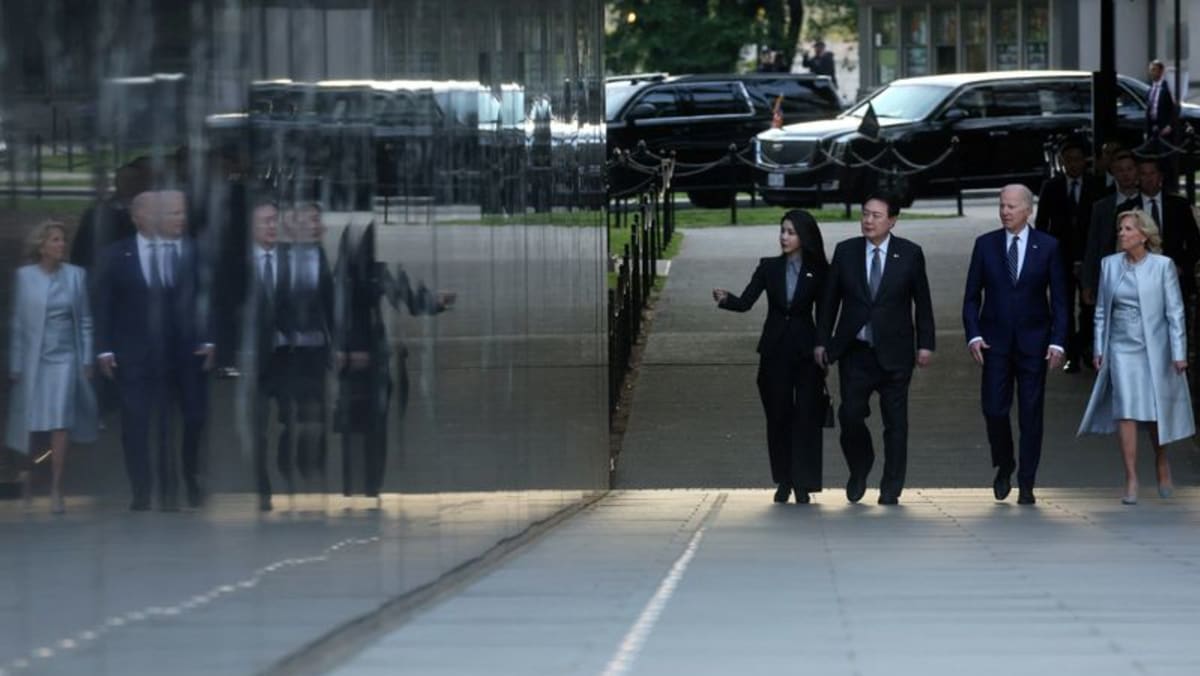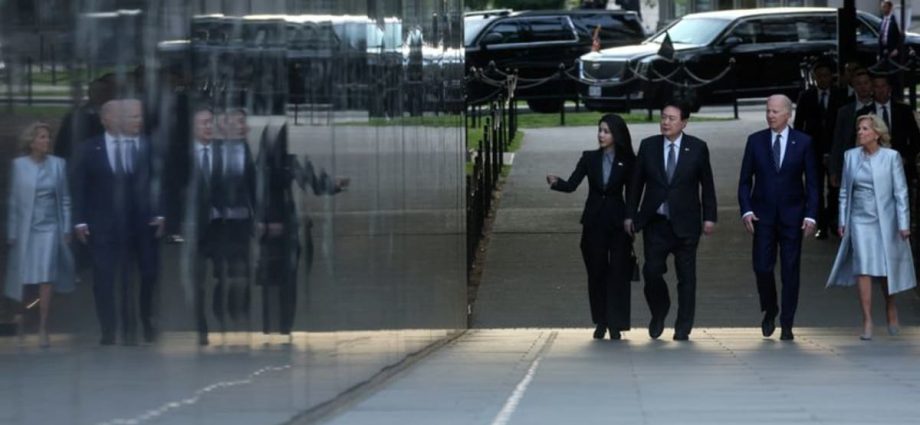
WASHINGTON: President Joe Biden and South Korean leader Yoon Suk Yeol are expected to agree on Wednesday (Apr 26) to deepen collaboration meant to deter nuclear escalation by North Korea amid heightened anxiety about its growing arsenal of missiles and bombs, US officials said.
Besides the pomp and pageantry the White House has scheduled, the two allies are using the first formal state visit by a South Korean leader in more than a decade to send a warning to North Korean leader Kim Jong Un.
The two are expected to agree on a new “Washington Declaration” that US officials say will give South Korea detailed insights into, and a voice in, US contingency planning to deter and respond to any nuclear incident in the region through a US-ROK Nuclear Consultative Group. The Republic of Korea is South Korea’s official name.
While the allies will affirm that diplomacy with North Korea is the best solution, Washington will announce that it will deploy imposing military technology, including a ballistic-missile submarine to South Korea in a show of force, senior US administration officials told reporters in a briefing call. It will be the first such submarine visit since the 1980s, they said.
The officials stressed that no US nuclear weapons would be returned to the peninsula, and South Korea would continue not to have control over the US nuclear arsenal.
South Korea will also reaffirm its commitment to the nuclear non-proliferation treaty and its non-nuclear status, they said.
“This is modelled after what we did with European allies during the height of the Cold War in similar periods of potential external threat,” said one senior Biden administration official.
The United States is briefing China in advance on the steps, the officials said, a measure nodding to desires to ease the tense relationship in the region.
Yoon’s six-day trip comes as Washington and Seoul mark a 70-year alliance. On Tuesday, Yoon and his wife Kim Keon Hee joined Vice President Kamala Harris for a tour of the NASA’s Goddard Space Flight Center, outside of Washington, to discuss cooperation on space issues. Later, he visited the Korean War Memorial with Biden, marking the deadly 1950 to 1953 conflict that echoes into the present day.
On Wednesday, Yoon will be feted with an elaborate ceremony and East Room dinner catered by a US chef whose mother emigrated from Korea.
It is only the second state visit Biden has hosted since he took office two years ago – the first such guest was France’s president.
For all the extravagance, Yoon’s visit comes at a moment of high anxiety in the region as more South Koreans say their country should develop its nuclear arsenal to guard against attack by North Korea.
A poll released on Apr 6 by the Asan Institute for Policy Studies in Seoul found 64 per cent of South Koreans supported developing nuclear weapons, with 33 per cent opposed.
Yoon, in an interview with Reuters last week, signalled for the first time a softening in his position on providing weapons to Ukraine, saying his government might not “insist only on humanitarian or financial support” in the event of a large-scale attack on civilians or a “situation the international community cannot condone”. The topic is expected to be discussed on Wednesday, along with climate change and cybersecurity.
Washington has looked fondly on Yoon’s willingness to help Ukraine and seek rapprochement with Japan, the other key US ally in northeast Asia, and on the wave of Korean tech investment in the United States since he took office, which officials say now approaches US$100 million.

